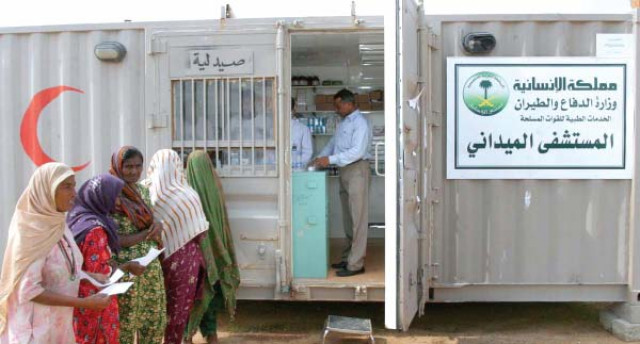Pakistan lags behind in malaria control, despite foreign aid
318,499 cases of malaria reported in 2016

According to an expert, if there is a constant pool of patients of malaria in the community, the malarial parasite can never be completely eradicated. PHOTO: APP/FILE
World Malaria Day was observed across the globe on Wednesday to create awareness about the disease, which has been one of the greatest causes of death.
According to a report issued by the World Health Organisation (WHO) in 2017, more countries are likely to eliminate malaria. Countries such as Kyrgyzstan and Sri Lanka were certified by the WHO as malaria-free in 2016. The WHO also identified 21 countries with the potential to eliminate malaria by 2020. The organisation is working with the governments of these countries known as 'E-2020' to accelerate their pace of eliminating malaria. Unfortunately, Pakistan is not among them.
Citing a study, Aga Khan University Professor Dr Mohammad Asim Beg said conflicts in malaria endemic zones, anomalous climate patterns, emergence of parasite resistance to antimalarial medicines and mosquito resistance to insecticides are major challenges in making this world malaria-free.
Speakers stress need for universal health coverage
Pakistan faces the highest risk regarding malaria among 20 countries in the WHO's Eastern Mediterranean Region. Commenting on the prevalence of malaria in Pakistan, Dr Beg said, "We can't sustain gains that we make over the years in order to eliminate malaria".
Despite receiving international grants, Pakistan has not been able to control malaria. In 2016, the country received around $2.7 billion in aid to eradicate the disease. Among various protozoa that cause malaria, Plasmodium vivax is most prevalent in Pakistan. Patients affected by it are hospitalised in many cases.
According to Dr Beg, if there is a constant pool of patients of malaria in the community, the malarial parasite can never be completely eradicated.
Unavailability of insecticides and bed nets and people's reluctance to use them, along with lack of hygiene and stagnant water are other factors that result in malaria.
Sedentary life, 'Western' diet cited as major causes of diabetes
Speaking to The Express Tribune, Health Director-General Dr Akhlaque Ahmed said it is not easy to control malaria in Pakistan due to the environmental conditions of the country. He added that Sindh had initiated the Malaria Control Programme to deal with the disease.
"Pakistan will enter in the elimination phase in 2020 and by 2030, Pakistan will be malaria-free," said Malaria Control Programme Director Dr Naheed Jamali.
Malaria infecting 7,000 children annually in province
Citing the WHO report, Dr Jamali said mortality due to malaria had declined throughout the world, including Pakistan, adding that malaria caused six deaths in Sindh last year. She said that in order to control malaria, the focus should be on controlling parasite transmission rather than eliminating mosquitos.
Currently, there are 961 diagnostic services for malaria in Sindh, the programme director said. She added that the government was trying to increase their number.



















COMMENTS
Comments are moderated and generally will be posted if they are on-topic and not abusive.
For more information, please see our Comments FAQ